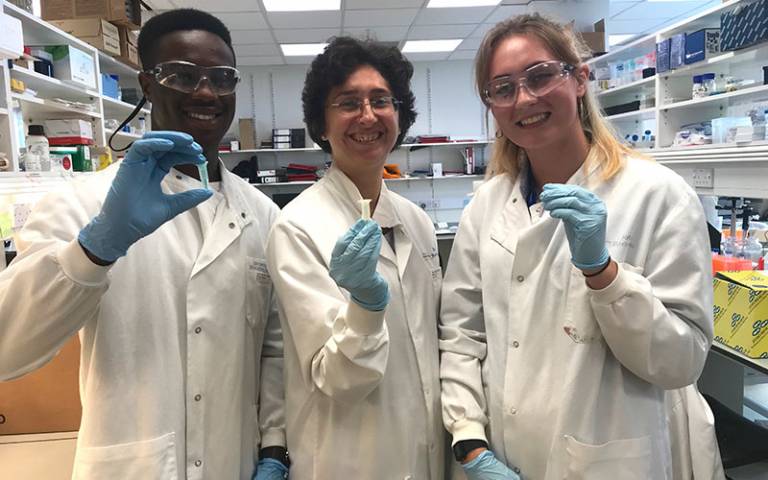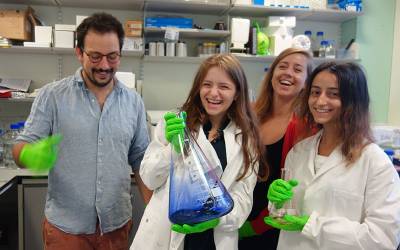in2scienceUK: UCL PhD student gives underprivileged young people a chance at science careers
Few young people from low income backgrounds progress to STEM careers. Connecting young people and researchers, UCL graduate Rebecca McKelvey’s non-profit organisation opens up new opportunities.

16 November 2020
There’s a growing recruitment crisis in the UK STEM (science, technology, engineering and maths) industry with a shortage of skilled scientists and engineers.
In2scienceUK aims to encourage young people from disadvantaged backgrounds to pursue STEM careers to boost diversity and inclusion and ensure the UK remains at the forefront of the sector.
The idea
Science, technology, engineering and mathematics are subjects that can lead to lucrative and fulfilling careers. Yet interest in these subjects tends to wane among secondary school children for many reasons, including misconceptions of what it means to be a scientist.
Children from low-income backgrounds are at a particular disadvantage. It's more difficult for them to gain work experience in science fields due to a lack of personal contacts and exposure to experts working in STEM. This has a significant knock-on effect. Research by the Wellcome Trust shows that the lack of opportunities to engage in real science leads to long-term educational and economic disadvantage. In fact, fewer than 10% of life science professionals and just 6% of doctors are from working-class backgrounds.
While studying for her PhD in Neuroscience in the UCL Division of Biosciences, Rebecca had the idea of giving young people from low-income backgrounds the chance to gain insights into STEM subjects. University researchers could mentor these students who would benefit from experiencing labs and other practical aspects of STEM. Rebecca imagined more young people would be inspired to study subjects that would maximise their employment prospects.
Turning around young people’s lives

She quickly put her plans into action in secondary schools across London. Rebecca found mentors from universities and provided science placements and careers guidance to more than 1,000 young people.
In 2019 alone, In2scienceUK worked with over 200 volunteer scientists and engineers in academia and industry and organised 384 students into placements across 100 areas of STEM. The programme is a huge success: over 75% of participants progress to university to study STEM degrees.
Rebecca said: “It all started from the beginnings of an idea I had when studying for my PhD and implementing this by creating In2scienceUK has been a journey. UCL’s support and guidance have enabled me to create something that has a transformative effect on young lives.”
Growing the organisation
Demand for In2scienceUK programmes has become so high that an application and interview process has been introduced. This will ensure that those who will benefit most gain access to these opportunities.
In2ScienceUK has also won a £250,000 grant from the Department for Digital, Culture, Media and Sport. The grant will enable the organisation to continue its work and to expand across the UK.
Another development is the launch of the alumni scheme. This helps the young people continue to grow their employability by enhancing their social capital, confidence and knowledge of STEM career pathways.
Links
Find out more about:
- entrepreneurship support for UCL students and recent graduates
- joining the Hatchery startup incubator
- in2ScienceUK
Photos supplied by in2ScienceUK
 Close
Close

